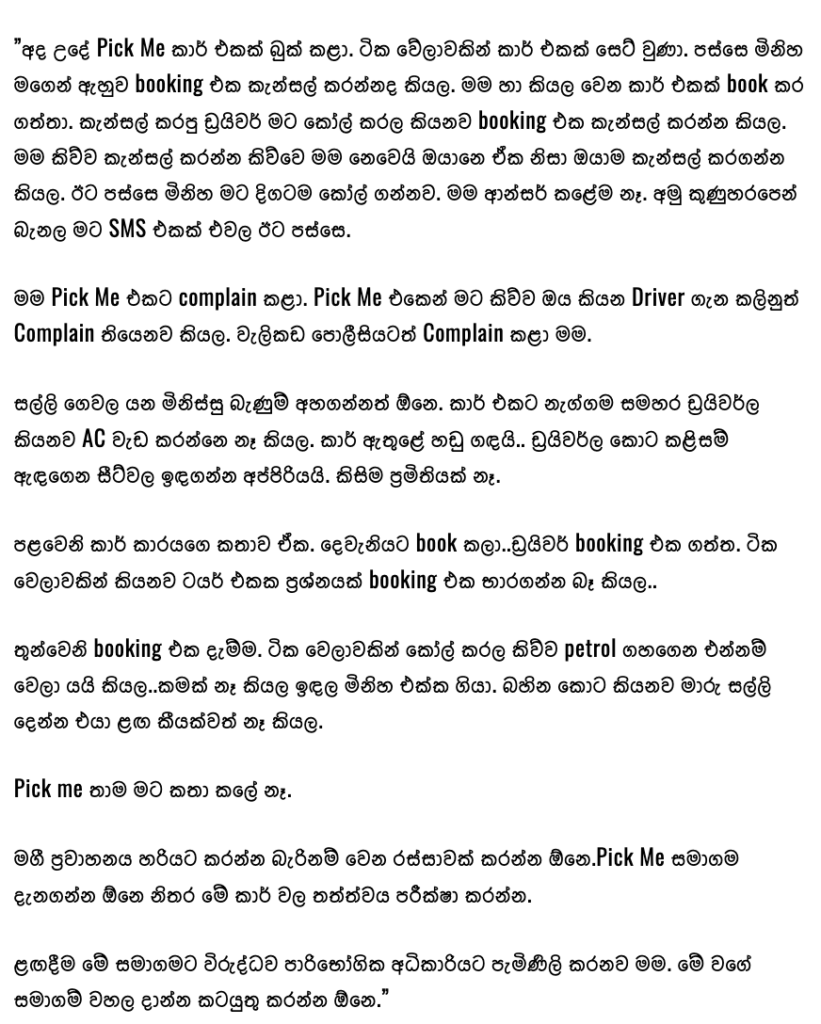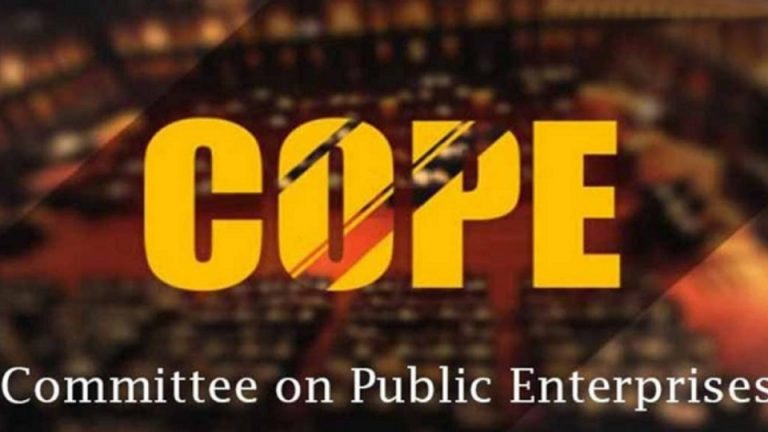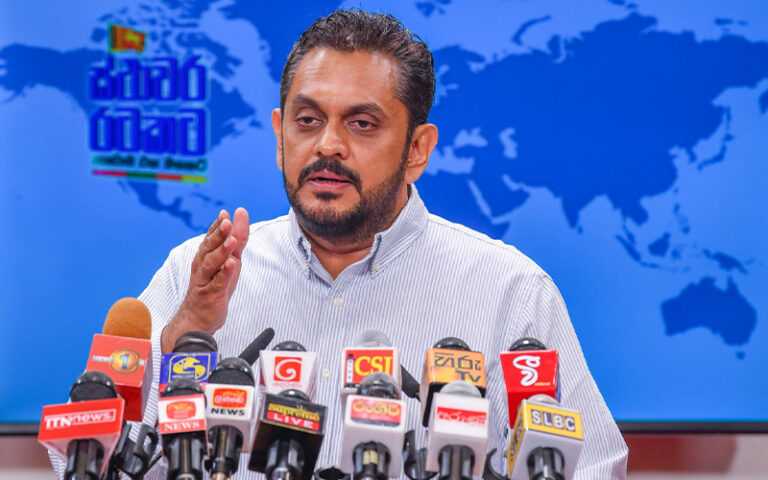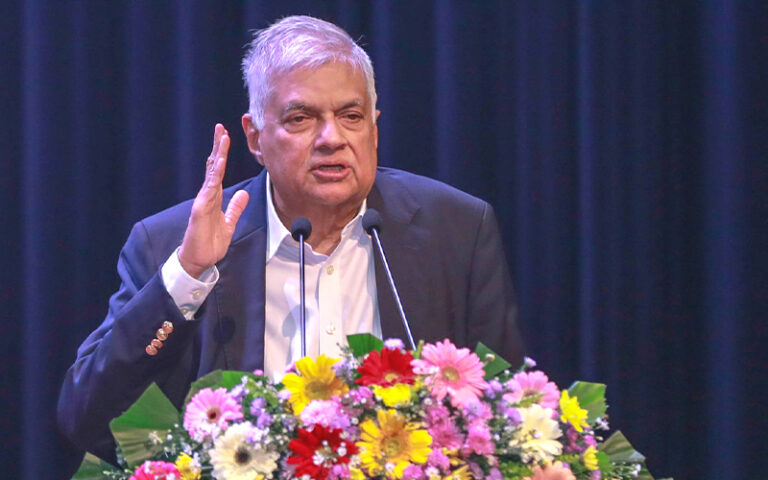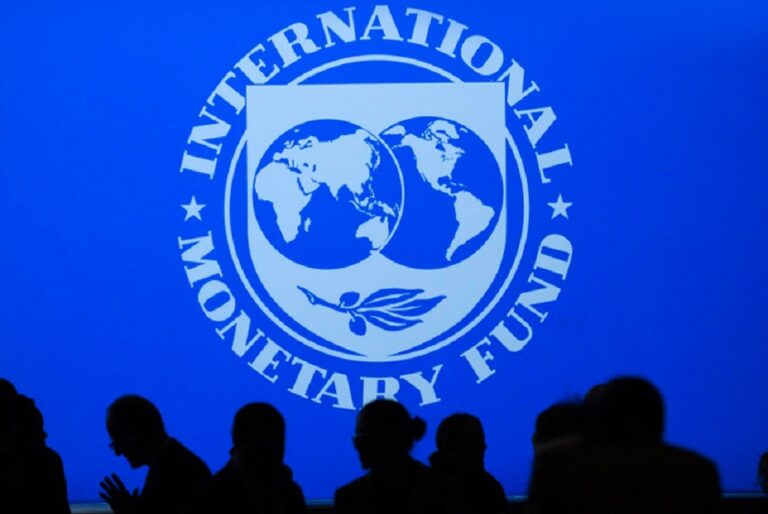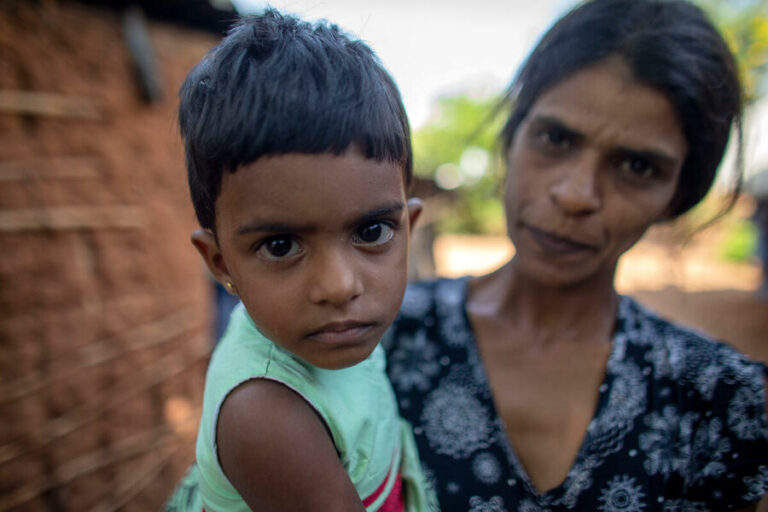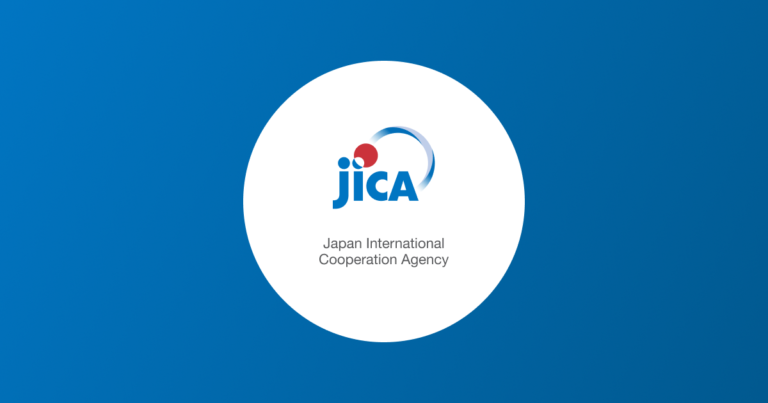It should be a masterpiece of modern digital technology- Succeed in the goal of taking Sri Lankan tea internationally as pure tea
– The President says at the Annual General Conference of the CTTA
President Ranil Wickremesinghe emphasized the necessity for a novel program to drive forward the plantation industry in Sri Lanka, encompassing the tea sector. He stressed that this program should be accurately crafted, integrating contemporary digital techniques.
These remarks were delivered during his address at the 129th Annual General Conference of the Colombo Tea Traders Association (CTTA), which took place Agust (15) afternoon at the Cinnamon Grand Hotel in Colombo.
The President highlighted that the tea industry possesses substantial potential to significantly contribute to the country’s economy. He underscored the importance of identifying the challenges within the sector and embracing innovative solutions to facilitate its transformation.
Continuing his statement, President Ranil Wickremesinghe further elaborated that the Government’s efforts have been focused on implementing programs aimed at rescuing the nation from economic distress and ensuring stability. However, it’s crucial to recognize that sustaining this economic stability for an extended period beyond a decade will be challenging if we continue to experience a trade imbalance in our economy.
In addressing this, President Wickremesinghe noted that the nation often finds itself compelled to secure foreign loans. He further highlighted that due to budget deficits, there emerges a necessity to print additional currency to cover these deficits.
The President emphasized that the nation stands at a critical juncture where a pivotal decision must be made – whether to revert to old systems or to embrace a more structured economic approach that propels the country forward into a new era. President Wickremesinghe asserted, “Remarkably, even amidst times of conflict, our nation’s economy demonstrated resilience. For instance, garment factories were established during wartime, showcasing our ability to navigate challenges.”
He continued, “Presently, sustaining an economy predominantly influenced by government control in aspects of ownership and regulation has become challenging. It’s essential that we consider alternatives, such as deregulation and privatization, to steer us towards a promising path.”
“The tea industry stands as a testament to private enterprise, not reliant on government backing. It’s a sector driven by individuals who utilized private capital, leading to both successes and failures. The historical backdrop also includes instances where land ownership and cultivation became contentious,” President Wickremesinghe emphasized.
“As we look towards the future, it’s crucial that we strategize. The tea industry holds immense potential to significantly contribute to our nation’s economy. Looking ahead over the next 20-30 years, we must analyse and address the challenges that have emerged within the sector,” he added.
“The looming challenge of global climate change poses significant threats to our future. Safeguarding the tea industry necessitates shielding our tropical climate from the impacts of climate change. We’ve actively put forth proposals on this front in international forums.
The implications of this situation can be viewed as a repercussion of extensive industrialization in the northern hemisphere. It’s imperative that we address this matter collectively. Our adaptation to climate change is paramount. It’s essential to acknowledge the precariousness of our water resources, a matter of grave concern.
A recent report highlighted the alarming degradation of usable water sources in Sri Lanka due to the changing climate. Given that a significant portion of our water sources is concentrated in the central hills, the implications directly affect the tea industry. It’s prudent for us to project where our market will stand in the next 50 to 60 years.
Considering the forecasts for global population growth by 2050, it’s projected that India’s population will rise by an additional 400 million. Similarly, the populations of Kenya, Malawi, and the Middle East are also on the upswing. Correspondingly, their per capita incomes are ascending.
However, Sri Lanka’s population is not experiencing the same growth trajectory. Therefore, our focus should be on how to enhance our product. China has been adopting systematic population control measures. Hence, engaging with China becomes essential.
In the times ahead, we can anticipate an influx of Chinese tea into the market, presenting favourable prospects. India, too, is poised to make its presence felt in the tea market. Therefore, meaningful discussions with China and India are pivotal.
Collaboration is key; we don’t journey alone. It’s crucial to meticulously study the market patterns of both Eastern and Western countries. Tea consumption in these regions often involves the addition of milk or biscuits. However, merely producing tea for these preferences isn’t enough. In today’s world, green tea has gained immense popularity. It’s imperative that we explore novel innovations and tea-related products.
Reflecting on my childhood, our homes used to feature expansive kitchens. However, modern homes are equipped with compact kitchens. In the next 20 to 30 years, residences without kitchens may feature one or two food processing machines. It’s imperative to acknowledge these forthcoming challenges and formulate suitable strategies.
We must face these challenges head-on and progress with appropriate solutions. Gunnar Myrdal, a renowned Swedish economic expert, analyzed Sri Lanka in his book ‘Asian Drama’ from the 1960s. He pointed out that ‘the British brought their managerial and financial expertise gained from the Industrial Revolution to India and Sri Lanka, subsequently introducing it to the plantation sector.’ This underscores that we have a contemporary plantation management system.
Now is the opportune moment to contemplate fresh management practices in comparison to those employed by small and medium-scale growers. The forthcoming program should be a masterpiece, seamlessly integrating the latest digital technologies.
“We should delve into the possibility of utilizing subjects such as artificial intelligence and biotechnology. This innovative endeavour should be spearheaded by the private sector. After all, the ultimate authority resides within your market.
Had it not been for Mr. Lipton’s arrival in Ceylon, our current state would not exist. Hence, we must urgently explore avenues to introduce new products to the market through system enhancements. You can rest assured of our full support in this endeavour. This is our contribution towards the tea industry’s future growth. We’re actively engaged in resolving the issues that arise alongside it.
I extend an invitation to all of you to persist in devising the finest solutions, ultimately achieving the objective of establishing Sri Lankan tea as a globally recognized, pure tea,” President Wickremesinghe concluded.
Minister of Industries and Plantations Ramesh Pathirana, Senior Advisor to the President on National Security and Chief of Staff to the President Sagala Ratnayake, Secretary to the Ministry of Plantations Janaka Dharmakirthi, Chairman of the Sri Lanka Tea Board Niraj De Mel, Chairman of the Sri Lanka Board of Investment and Port City & President’s Adviser Dinesh Weerakkody, Colombo Tea Traders Association President Sanjaya Herath, Vice President Lushantha De Silva, former Presidents Jayantha Karunaratne and Anslem Fernando were present on this occasion.
